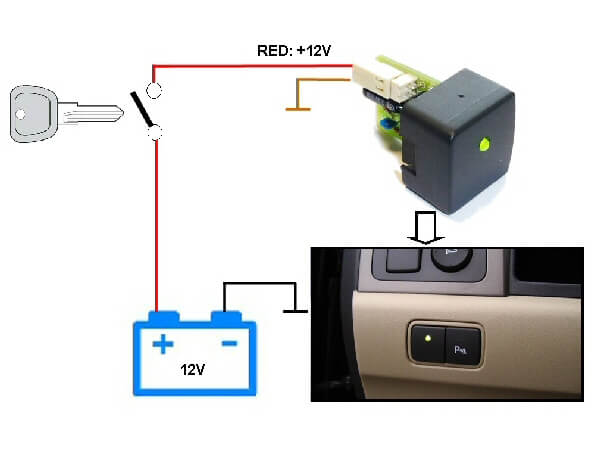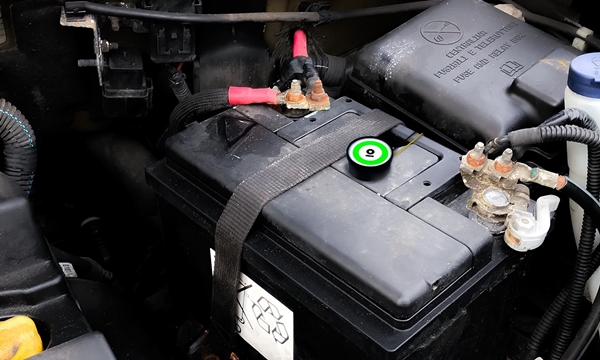

This curve becomes less steep as more miles are added, too, with the study indicating the battery packs of these long-range Teslas typically held at least 90 percent of their original charge after 150,000 miles of driving. A crowd-sourced study by Tesla owners in the Netherlands-using data from Teslas sold throughout the world-showed that the battery packs of Model S sedans were seeing an average rate of degradation of around 5 percent during the first 50,000 miles of driving. Tesla's not working with an arbitrary percentage, either, as the likelihood of one of its vehicles' battery packs degrading to less than 70 percent of its original charge capacity during the warranty period is slim. If charge capacity falls below that during the warranty window, then owners should expect Tesla to address and cover the costs of this battery-related issue. Tesla's fine print says, for example, that a vehicle such as the Model 3 should maintain at least 70 percent of its charge capacity while its pack is still under warranty. As time goes on, these small hits to the pack's maximum capacity take a toll on the overall driving range of an EV. With each charge cycle, lithium-ion battery packs lose a fraction of their total capacity. This warranty doesn't only cover the complete failure of the battery pack, it also serves as a guarantee against serious degradation. Tesla, for instance, offers an eight-year battery warranty and coverage of between 100,000–150,000 miles depending on the specific model. The battery's limited warranty, thus, provides an insight into what the manufacturer views as the typical pack's minimum life expectancy.Īll EVs sold today include a battery warranty of at least eight years and 100,000 miles. Given the cost of replacing a battery pack, no automaker wants to get stuck with this bill due to the fact they overestimated the pack's resiliency and longevity. Guesswork aside, the simplest way to judge the longevity of a battery pack is by way of the manufacturer's warranty. Polestar How Long Do Electric Car Batteries Last?
PLUGIN CAR BATTERY MONITOR SOFTWARE
Extreme temperatures affect the charging and discharging of lithium-ion batteries.Īutomakers, however, have addressed most of these issues by developing software that manages the battery's health and temperature, the latter of which also includes dedicated hardware, such as cooling and heating systems designed to improve the efficiency (and safety) of lithium-ion battery packs whether they’re motivating an EV through Norway during the peak of winter or Texas in the midst of an extreme heat wave.Though the chances are low, lithium-ion batteries have the potential to overheat and catch fire.Fully charging and fully discharging lithium-ion batteries takes a toll on their service life.Onboard battery management is critical to the longevity of lithium-ion batteries.

Lithium-ion batteries are expensive to produce, and mining the cobalt and nickel required to make these energy storage devices is rife with both environmental and humanitarian concerns.

That said, lithium-ion batteries do have some drawbacks: However, a EV's peak power does tend to diminish with its state of charge, which is why we do all of our performance testing starting with a 100-percent charge.
PLUGIN CAR BATTERY MONITOR FULL
In the simplest terms, an electric car with a lithium-ion battery pack performs similarly to a car with an internal combustion engine and a full tank of gasoline, as an EV with the right combination of battery capacity, curb weight, and aerodynamic efficiency can drive hundreds of miles between charges. Lithium-ion batteries provide more consistent voltage even as the charge degrades.Lithium-ion batteries do not require periodic full discharges, nor any maintenance to electrolytes.Lithium-ion batteries self-discharge at a lower rate than other battery types.Lithium-ion batteries have a higher energy density than conventional lead-acid batteries, such as those that power the electrics of most modern cars, or nickel-metal hydride batteries, which are currently used in many hybrid cars, such as those from Toyota.Lithium-ion batteries have the following benefits: While other battery types are expected to power the motors of electric cars in the coming years, such as solid-state batteries, the current infrastructure for large-scale battery production favors those of the lithium-ion type. Most modern electric cars use a lithium-ion battery pack to store energy. Plus, we now have a better picture of the typical EV battery pack's average service life thanks to the global uptick in sales of such vehicles. Even this is set to become less of an issue in the future, as manufacturing improvements and additional scale ought to make replacing an EV's battery pack a less costly affair.


 0 kommentar(er)
0 kommentar(er)
